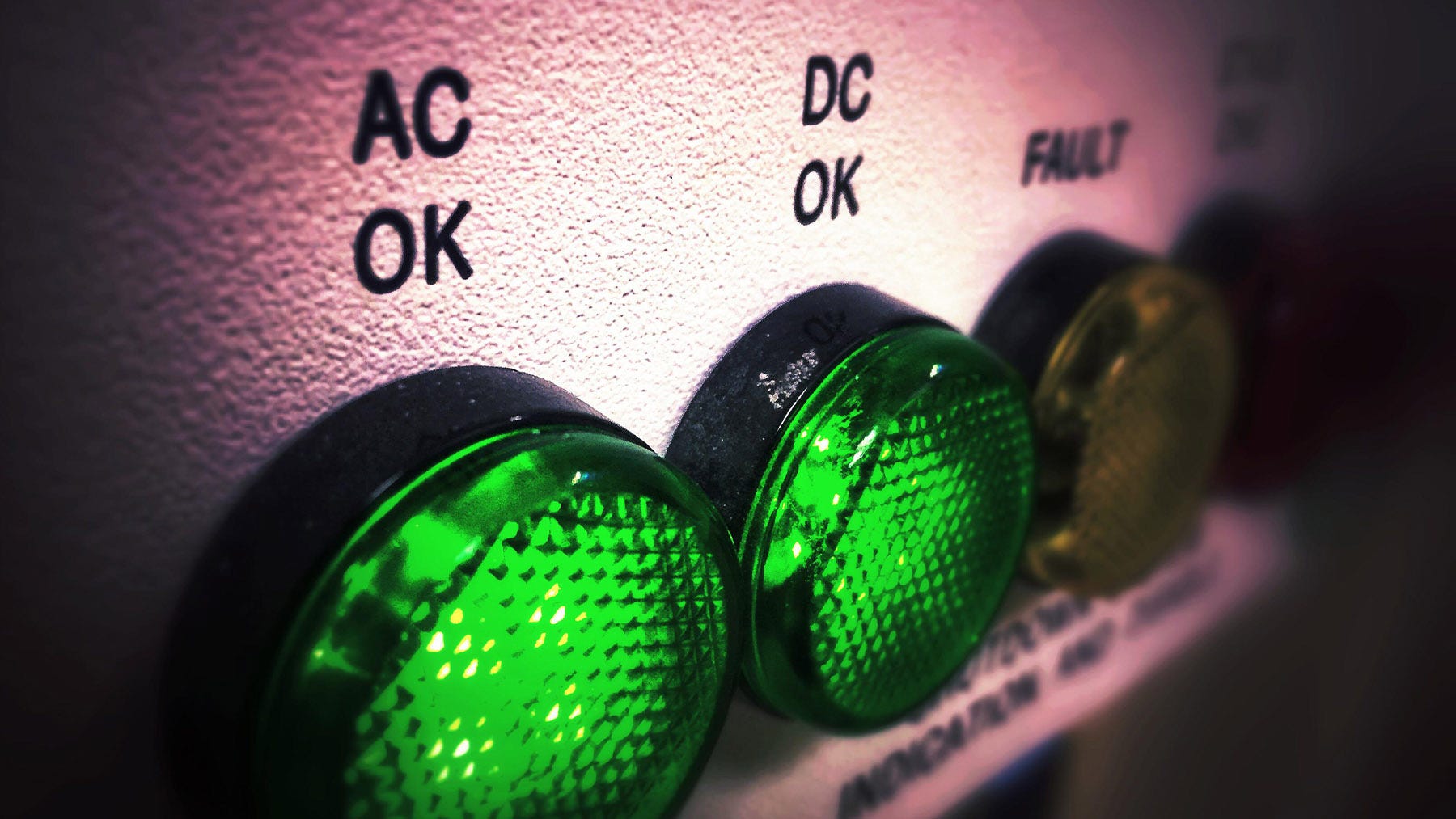Choosing the Right Data Center UPS: 5 Key Factors for Improving UptimeChoosing the Right Data Center UPS: 5 Key Factors for Improving Uptime
Optimize your data center operations with these five essential uninterruptable power supply (UPS) selection criteria.

All uninterruptible power supply (UPS) units do the same basic thing: they keep electricity flowing to servers and other equipment in the event that your main data center power source goes down. However, the efficiency, reliability, and cost of UPS units can vary widely.
To choose the right UPS for your data center, you’ll need to weigh these and other key considerations. Read on to consider the crucial factors to keep in mind when choosing a data center uninterruptable power supply system.
Data Center UPS Solutions: The Basics
An uninterruptible power supply unit is a type of device that provides backup power. UPS systems are designed so that if the main power source in a facility shuts down, any devices connected to the UPS will continue to receive electricity.
The amount of time a UPS can keep a server energized is low – typically, no more than around 15 minutes – although this varies depending on UPS capacity and how much energy a server consumes.
Thus, the main purpose of a UPS isn’t to keep servers running indefinitely (for that, you’d want a generator or a long-term backup battery system). It’s to provide power long enough for them to shut down gracefully, avoiding issues like data corruption caused by file systems being left in a “dirty” state due to a sudden shutdown. UPSes can also provide time to switch traffic to a different data center so that end-users don’t experience disruption in service.

Purchasing a data center UPS with a power rating that is about 20% higher than your total requirements is wise. (Image: Alamy)
Choosing a UPS for your data center: 5 Key Considerations
To select the right UPS for your data center, you’ll want to consider each of the following factors:
Power Rating
UPS power rating refers to how much energy a UPS can supply. This is the single most important consideration when choosing a UPS because you want to ensure that the UPS can generate enough energy to keep all your servers running.
UPS power ratings are measured in volt-amperes (VA). To calculate how many VAs you’ll need, determine the amps and watts for each server, switch, and other essential IT assets in your data center (often, you can find this information on the back of the server). Then, multiply volts by amps to calculate your total VAs. This is how many VAs your UPS needs to supply. If you purchase multiple UPS units, they’ll need to supply the total VAs necessary to power all your servers.
Remember as well to factor in a margin of error, since in some cases IT equipment may consume more power than its official ratings indicate. Plus, there may be some equipment you haven’t accounted for, or that you'll add in the future. Purchasing a UPS with a power rating that is about 20% higher than your total VA requirements is wise.
Runtime
UPS runtime refers to how long a UPS can supply power during an outage of the main power source. You’ll want to ensure your UPS is capable of keeping your servers running long enough to achieve whatever you need them to achieve in the event of a power failure. If you only need to shut them down, and they are hosting workloads that shut down quickly, your required runtime could be less than a minute.
However, some servers or applications take longer to shut down. For instance, it may take several minutes to turn off a database that has a large number of active connections.
Keep in mind that, while some UPS manufacturers advertise runtime ratings for their devices, these numbers may vary from your actual runtime, which is affected by the power rating of your devices and the amount of energy they actually consume. This means that the higher your UPS’s power capacity relative to your devices’ power needs, the longer your runtime will be, regardless of the UPS's official runtime rating.
UPS Efficiency
Some energy is wasted when UPS units supply energy to devices. This includes not just the energy supplied during an outage of the main power source, but also any electricity that flows through UPS devices on an everyday basis.
UPS energy efficiency ratings determine how much energy is lost. Typically, efficiency levels are somewhere between about 90 and 97 percent.
The more efficient your UPS, the less electricity you’ll waste. This is important from both a cost-efficiency and a sustainability perspective. But more efficient UPSes typically cost more, so you’ll want to weigh how important it is to purchase highly efficient devices. If your data center energy bills are low or you source your power from renewable sources, you might not need a highly efficient UPS.
UPS Expandability
Some UPS systems are designed to be modular, which means you can add capacity to them over time. This is valuable if you expect to increase your server footprint over time and want to be able to expand your UPS along with it.
On the other hand, if your long-term power needs are fixed, a modular UPS won't offer much value.
Battery Life
To store power temporarily, UPS units use batteries. In most cases, the life of those batteries is shorter than the life of the UPS system itself, which means you’ll need to replace the batteries periodically – typically, every three to five years.
Choosing a UPS with longer battery life reduces the amount of maintenance you need to perform. It also increases UPS reliability, which is important because you don't want to leave your servers temporarily unprotected if one of your UPS batteries suddenly fails and you need to wait for a replacement to arrive.
Power Up: Getting the Best Data Center UPS
While the five points above are critical when selecting a data center UPS, there are additional considerations, such as the unit’s size and whether it can be rack mounted. However, starting with the key factors outlined above will
About the Author
You May Also Like









